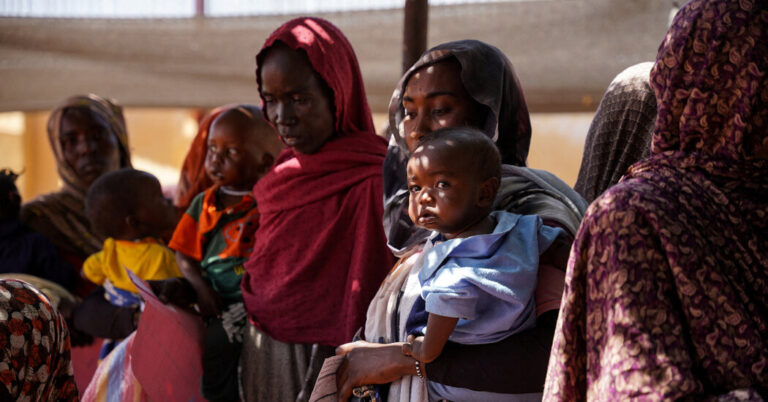Famine has officially been declared in a city in Sudan’s Darfur region that has been under siege in the midst of the country’s 15-month long civil war, two organizations that monitor world hunger announced on Thursday.
People who fled to a camp known as Zamzam near the city of El Fasher, in North Darfur state, have been facing famine since June, and no food aid is reaching them, prompting the official declaration, the agencies said. The Zamzam camp has grown recently and now holds about half a million people.
An official declaration of famine is rare, and is intended to prompt a response from donor governments and aid groups.
This one shows how the war between rival military factions has plunged a fertile nation once considered a global breadbasket into a deepening hunger and humanitarian crisis.
Two other camps in the city of El Fasher — Abu Shouk and Al Salam — were likely undergoing famine but limited evidence made it difficult to confirm, according to the two organizations — the Famine Early Warning Systems Network, a research group funded by the United States government, and the Famine Review Committee, an independent group of experts.
Experts use a strict methodology to classify famine. A famine is declared when 20 percent of households, or one in five people in an area, face an extreme lack of food, 30 percent of children suffer from acute malnutrition and two adults or four children for every 10,000 are dying every day from malnutrition or starvation.
Famine is expected to last in these camps, which together host between 400,000 and 600,000 people, at least through October, the organizations said.
The declaration of famine is the first in Africa since South Sudan’s in 2020. The group of experts also projected famine in Somalia in 2022 and in Gaza this year, but stopped short of officially declaring those emergencies to be famines.
Sudan’s Darfur region has been the site of intense conflict and even massacres since the war between the country’s army and the paramilitary Rapid Support Forces began on April 15 last year.
But the situation in El Fasher had sharply deteriorated since April this year, when the paramilitary group laid siege to the city and ratcheted up attacks on surrounding villages. The escalating battle for the city entrapped many civilians, destroyed health care facilities and left communities without food or water. The conflict also damaged farmlands, limited the availability of food in the city’s markets and hindered access to humanitarian aid.
Sudan is currently home to the world’s largest hunger crisis, according to the World Food Program. More than half of the country’s 48 million people are facing crisis levels of hunger, the U.N. agency said. Sudan is also facing the world’s worst displacement crisis, with more than 10 million people internally displaced or pushed to flee to neighboring countries.



